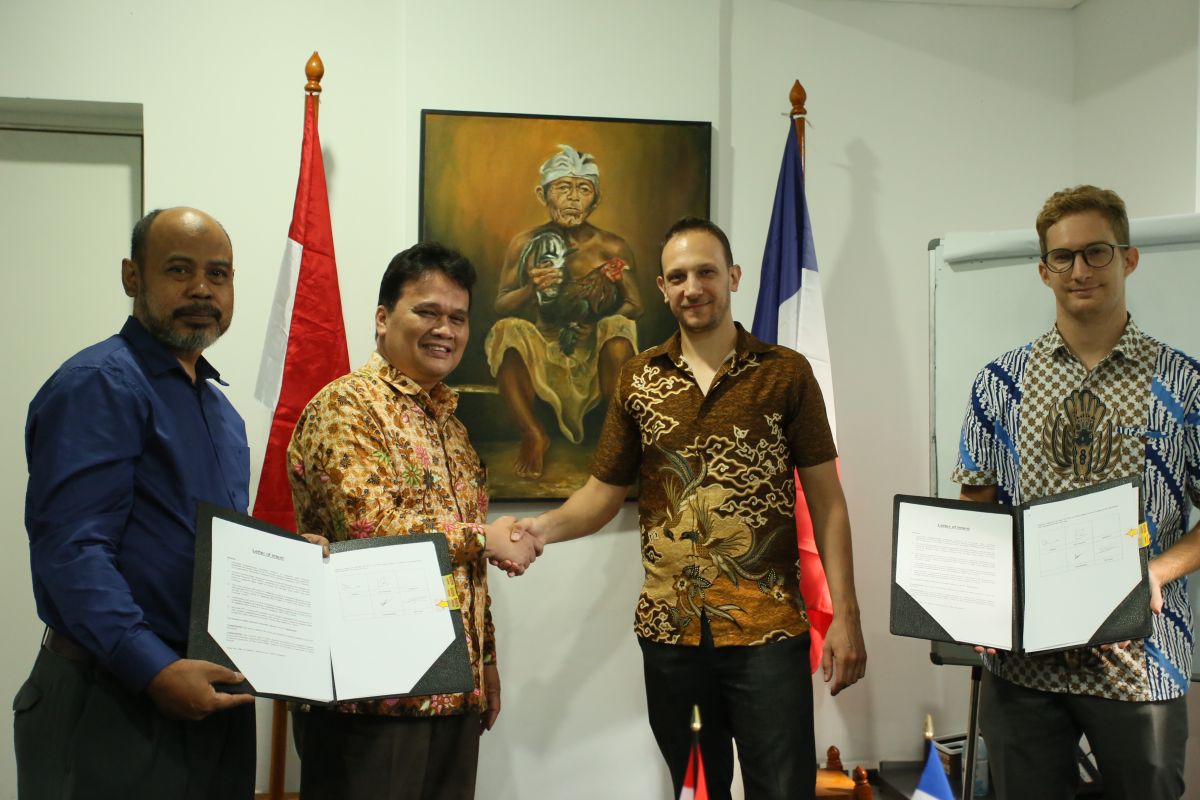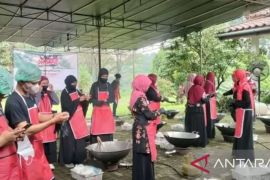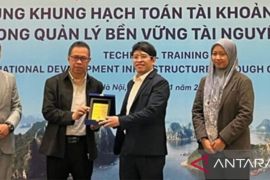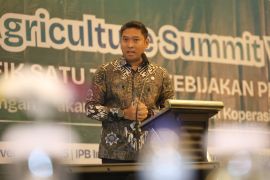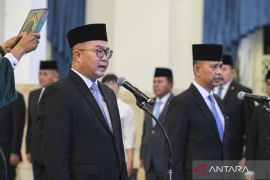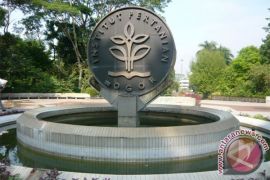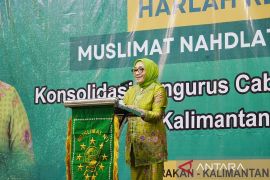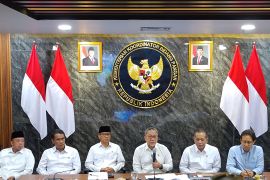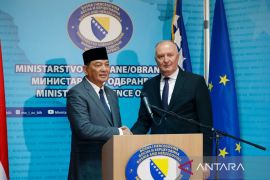The cooperation was marked by the inking of a letter of intent by five parties, specifically, INP ENSIACET of Toulouse; the Bogor Institute of Agriculture (IPB); University of Singaperbangsa Karawang (UNSIKA); BioTanah company from Pau City, France; and Green company Building of Paris at the French Institute in Indonesia (IFI), here Monday (May 20).
The IFI Jakarta statement on Friday noted that the concept of innovative cooperation was based on the agrochemical and mechanical characterization of rice straw and involving farmers in pellet production.
The innovation aims to lower Indonesia's greenhouse gas emissions by converting 60 million tons of rice straw that is burnt and wasted yearly in Indonesia into biofuels, as well as to sustainably produce renewable and local energy in the context of competitive models of economy.
Indonesian farmers applying the innovation can earn 10 to 15 percent additional income. Hence, the children of farmers can receive better education and health facilities.
The BioTanah Project has a nationwide dimension and is backed by the Indonesian Ministry of Energy and Mineral Resources, Ministry of Agriculture, Ministry of Research and Higher Education, and IFI.
The inking of the letter of intent in the presence of representatives of those ministries can facilitate cooperation and establish the objectives and roles of each partner.
INP ENSIACET Toulouse and their Chemical Engineering Laboratory (LGC) will collaborate on research and development (R & D) prioritizing short and local supply channels for the ecological transformation of Indonesian biomass into fuel. Following capacity-building and knowledge-sharing approaches, the LGC, in October 2019, will host an Indonesian student pursuing doctoral studies in this field.
IPB and their Research Center on Surfactants and Bioenergy (SBRC) will work on R & D directed at mapping the potential of Indonesian rice for straw pellet production.
UNSIKA will work on R & D prioritizing the involvement of farmers in drying, milling, and storage of straw before density.
The Bio Tanah company from Pau, which oversees the development of the Bio Soil concept, will coordinate R & D with French and Indonesian universities and develop densification processes of agro-chemical and mechanical densification processes.
The Green Building of Paris will ascertain the development of the Bio Tanah concept in Indonesia as a whole, at the industrial and commercial level.
The first pilot project is being developed in the Karawang area, West Java, which is viewed as one of the key rice production centers in Indonesia.
The pilot project is targeted to begin operating the first production by 2019-end.
Taking into account Indonesia's figures of annual rice production, replicating the Bio Tanah concept on a broader scale can totally revolutionize the energy mix and expedite the transition of sustainable energy in Indonesia.
Translator: Yashinta / Azis Kurmala
Editor: Bambang Purwanto
Copyright © ANTARA 2019
